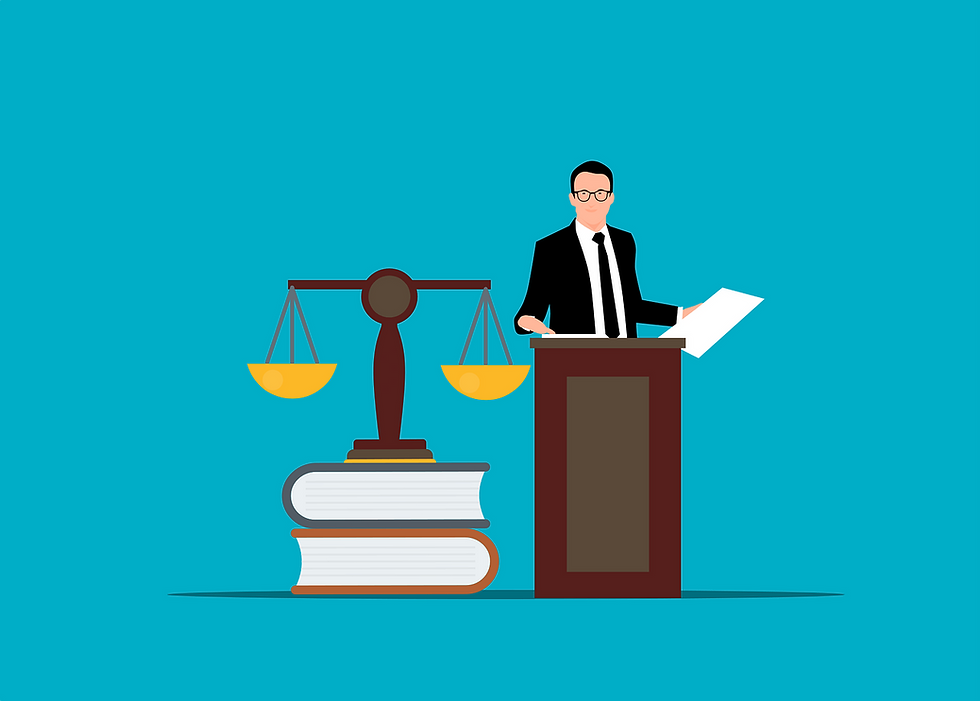The Step-by-Step Process of Working with a Criminal Lawyer
- Lauren Bracy
- Nov 10, 2025
- 4 min read
When facing criminal charges, knowing how to work effectively with a Criminal Lawyer in Sydney CBD can make all the difference in achieving a positive outcome. Whether you’re dealing with traffic offences, assault allegations, or more serious criminal matters, understanding the legal process helps you stay informed and confident. This guide walks you through each step of working with a Criminal Lawyer — from the first consultation to the final resolution — with a focus on the legal environment in Sydney CBD, Australia.
Understanding the Role of a Criminal Lawyer

A Criminal Lawyer specialises in representing individuals or businesses accused of criminal conduct. Their primary role includes:
Advising clients on their legal rights and possible defences.
Representing clients in court during bail applications, hearings, and trials.
Negotiating with prosecutors to reduce charges or penalties.
Providing ongoing guidance throughout the legal process.
In Sydney CBD, Criminal Lawyers often handle cases in local courts such as the Downing Centre Local and District Court, which deals with many criminal matters in New South Wales (NSW).
Step 1: The Initial Consultation
The first meeting with your Criminal Lawyer is crucial. During this session, the lawyer listens to your side of the story, assesses the seriousness of the charges, and explains your legal options.
You should bring:
Any documents related to your case (police reports, summons, or court notices).
Notes about the incident and any witnesses.
Questions about possible outcomes and legal costs.
This consultation helps you understand your situation under NSW criminal law and decide whether to proceed with that particular lawyer.
Step 2: Case Assessment and Strategy Development
After you’ve engaged a Criminal Lawyer in Sydney CBD, they will conduct a detailed case review. This includes:
Analysing police evidence and statements.
Identifying weaknesses in the prosecution’s case.
Gathering evidence, including CCTV footage or witness testimony.
Your lawyer will then build a defence strategy tailored to your circumstances. In Sydney CBD, this could mean negotiating with NSW Police prosecutors or preparing for trial in the Downing Centre District Court.
Step 3: Legal Representation and Court Appearances
Once your case progresses to court, your Criminal Lawyer becomes your voice before the judge and magistrate. Court appearances can include:
Bail hearings – to secure your release while awaiting trial.
Committal hearings – to determine if there’s enough evidence for trial.
Trial proceedings – where your lawyer presents evidence, cross-examines witnesses, and delivers arguments.
Having an experienced Criminal Lawyer in Sydney CBD means your defence is handled with professionalism, using local court knowledge and familiarity with NSW laws and procedures.
Step 4: Negotiation and Plea Bargaining
Not every case goes to trial. In some situations, your Criminal Lawyer might recommend negotiating a plea deal. This could involve pleading guilty to a lesser charge to receive a lighter penalty.
Negotiations are common in Sydney CBD, where experienced lawyers work closely with prosecutors to reach fair and efficient resolutions. A skilled lawyer ensures any plea bargain protects your best interests.
Step 5: Sentencing and Post-Trial Guidance

If found guilty, sentencing follows. Your Criminal Lawyer will advocate for the most lenient sentence possible — such as community service, a fine, or a good behaviour bond. They can also help you:
File an appeal if you believe the sentence was unfair.
Understand any probation conditions.
Clear your record where applicable under NSW law.
Post-trial guidance ensures you fully understand your rights and responsibilities moving forward.
Questions and Answers: Common Questions About Criminal Lawyer
1. How much does a Criminal Lawyer in Sydney CBD cost?
Fees vary depending on the complexity of the case and the lawyer’s experience. Some offer fixed fees for straightforward matters, while others charge hourly rates. Always request a written cost agreement before proceeding.
2. Do I really need a Criminal Lawyer if my charge is minor?
Yes. Even minor offences can have long-term consequences, such as affecting your job or travel opportunities. A qualified Criminal Lawyer ensures your rights are protected and can often reduce or dismiss charges.
3. What are the most common criminal cases handled in Sydney CBD?
Typical cases include drink driving, drug possession, assault, theft, and fraud. The Downing Centre Local Court handles many of these offences for Sydney’s central district.
4. How long does the legal process usually take?
It depends on the case complexity. Simple matters might resolve within a few weeks, while serious cases requiring a trial may take several months or longer. Your Criminal Lawyer will guide you on expected timelines.
5. Can I change my Criminal Lawyer during the case?
Yes. You have the right to switch lawyers at any point if you’re unsatisfied with communication or performance. However, it’s best to do this early to avoid delays or confusion.
Conclusion: Your Path to a Successful Criminal Lawyer
Working with a Criminal Lawyer in Sydney CBD involves several clear steps — from the initial consultation to case strategy, court representation, and post-trial support. Each phase plays a vital role in ensuring your rights are upheld and your case is handled effectively under NSW criminal law.
If you’re facing criminal charges, act quickly. The sooner you consult a Criminal Lawyer, the more time they have to gather evidence, prepare your defence, and protect your future. With the right legal professional by your side, you can approach your situation with clarity, confidence, and the best possible chance for a positive outcome.
.png)



Comments